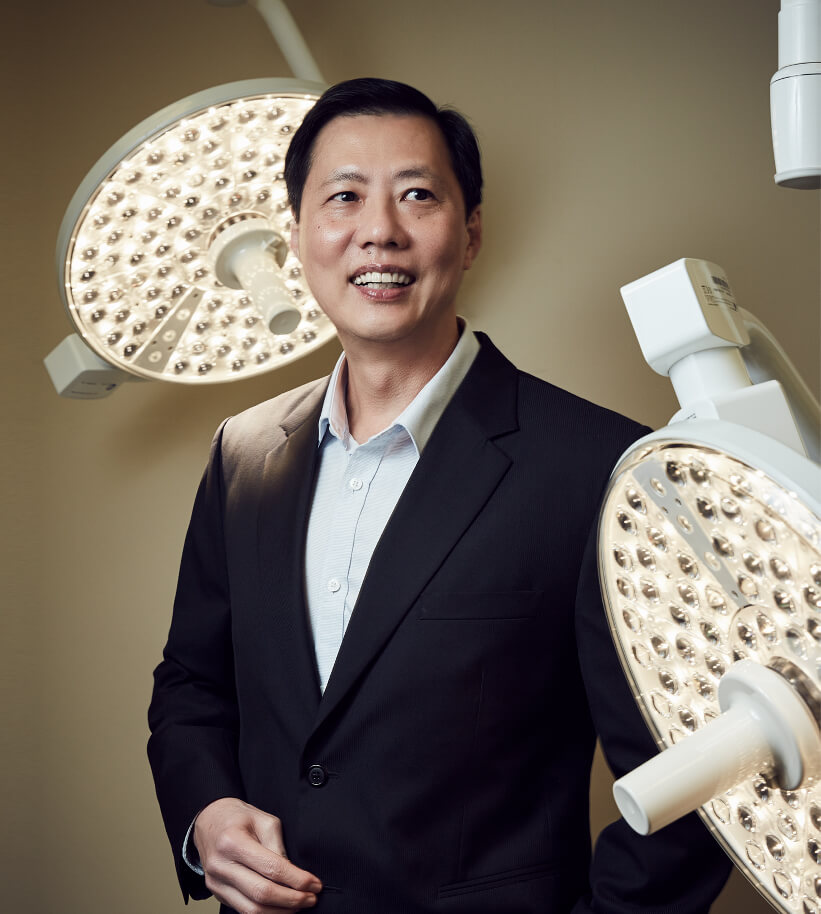
Mouth ulcers are sores that appear in the mouth. The most common mouth sores are aphthous ulcers, most of which measure less than 1cm in diameter. A single or multiple ulcers can appear on the inside of the cheeks, lips, tongue, gums and roof of the mouth (palate). They are typically well-defined, painful and shallow, and may recover even without intervention.
Mouth ulcers may signal a more severe condition: cancer of the mouth. Warning signs include ulcers that do not heal after three weeks, bleeding from the ulcer, red or white patches on or around the ulcer, and the presence of enlarged lymph nodes in the neck.
Mouth cancers are most commonly found on the lateral edge of the tongue, but they can also arise in the cheek, gums, palate and tonsils. Mouth cancers are associated with smoking, alcohol intake, betel nut-chewing and poor dental hygiene. There is also increased incidence of mouth cancers that are linked to the human papillomavirus (HPV), especially cancers involving the tonsils.
There can be many causes for mouth ulcers, and treatment should be directed accordingly.
Cause: Trauma (accidental biting of tongue or cheek)
Treatment: Smooth out sharp teeth; fix or replace poor-fitting dentures
Cause: Iron or vitamin B deficiency
Treatment: Iron or vitamin B supplements; consume foods rich in iron and vitamin B
Cause: Chemical or thermal injury (contact with hot liquids or foods)
Treatment: Avoid foods that irritate your mouth, including acidic or spicy foods
Cause: Tumours (mouth cancers)
Diagnosis and treatment: A biopsy is necessary to confirm that your oral ulcer
is caused by cancer. Imaging scans are required to check the extent of the tumour and determine
the stage of the disease. Early stage (Stage I and II) oral cancers are best treated with
surgery, while radiation therapy is added for later stages (Stage III and IV). Early stage
oropharyngeal cancers such as those of the tonsil can usually be effectively treated with
radiation therapy alone. Chemotherapy is given concurrently with radiotherapy for patients with
advanced stage cancer.
Some oral ulcers, such as recurrent aphthous ulcers, may not have obvious causes. Treatment is focused on relieving pain, reducing inflammation, and managing secondary infection.
Antiseptic mouthwashes containing benzydamine or chlorhexidine solutions can reduce inflammation and secondary infection.
Topical corticosteroids come in the form of paste or gel. Useful for allaying pain and inflammation, they are most effective when applied during the onset of the ulcer. Topical anaesthetics (such as xylocaine gel) provide quick pain relief but are limited by their short duration of action.

Senior Consultant Thyroid-Head & Neck Surgeon
MBBS (Singapore), FRCS (Edinburgh),
FRCS (Glasgow), FAMS (ORL)
Prof Goh is a Senior Consultant ENT specialist in Singapore with over 20 years’ experience, both locally and abroad in the UK and Canada under the Health Manpower Development Programme Award and the Singapore General Hospital (SGH) Scholarship.
A respected figure in his field, Prof Goh was the Head of the ENT Department at SGH and a founding member of the Asian Society of Head & Neck Oncology. Passionate about training up future ENT doctors, he teaches at the Duke-NUS Medical School and serves as Chairman on the Residency Advisory Committee at the Ministry of Health. A recipient of numerous service awards, Prof Goh’s dedication to his patients and the advancement of his field cannot be overstated.